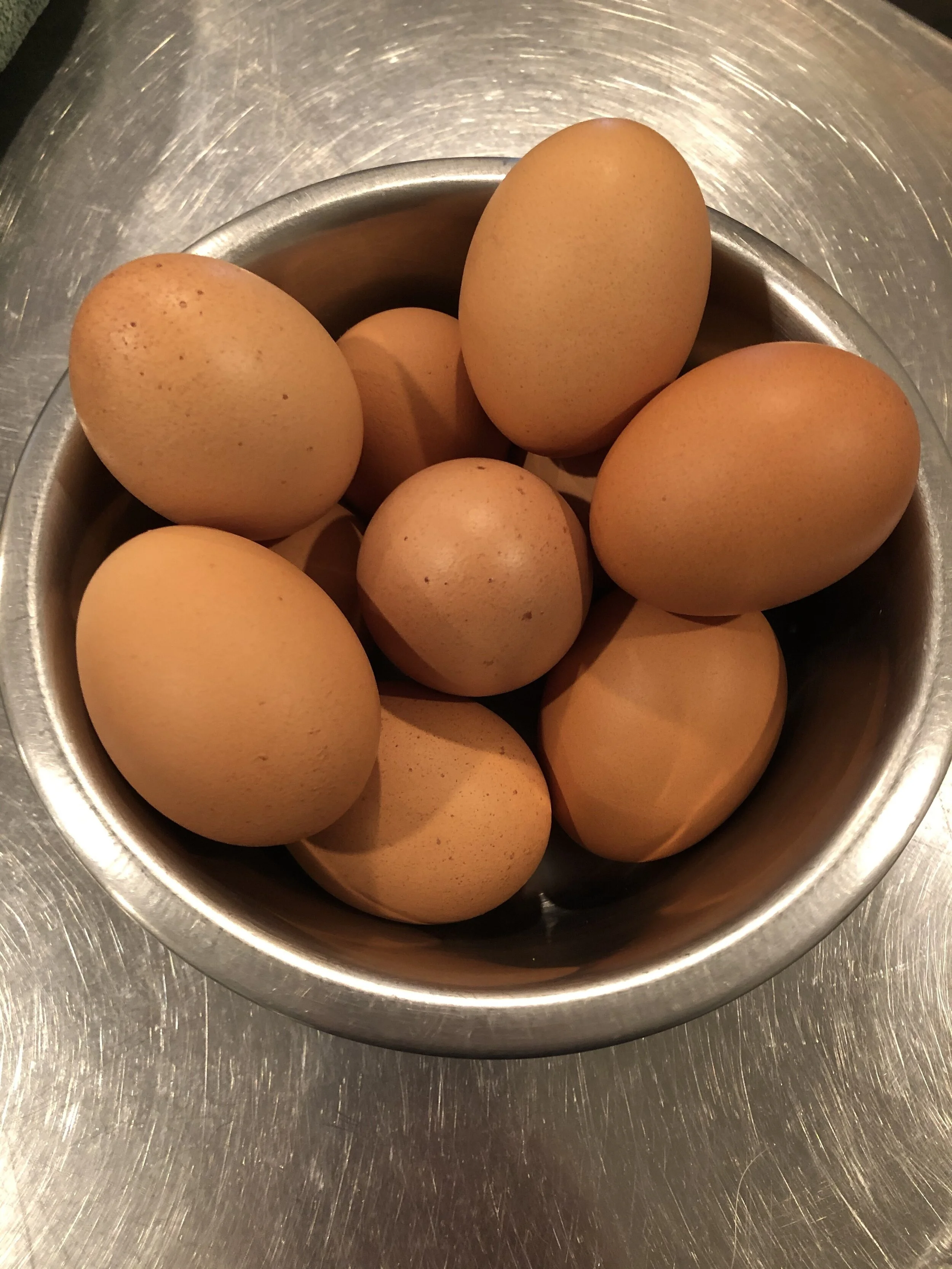As many of you know, eggs are a major component in my hound’s "Natural Rearing" Diet. Indeed, my hounds are fed whole, raw eggs five days per week -- one egg per dog per day, as an ingredient in their VitaMix breakfast puree.
Eggs are an essential aspect of their diet, not just because of the obvious being that they are nature’s purest form of calcium. They are complete in protein and an excellent source of vitamin A, not to mention Vitamin B complexes, lethicin, and sulfur amino acids, and so forth. All of which your dog needs in their diet. Some people have worried about feeding eggs and biotin deficiencies. They point to a study with lab rats whose diet’s main staple was voluminous quantities of egg whites in which the rats developed a biotin deficiency. Perhaps this vulnerability may occur if an unknowledgeable, stupid person only fed their dog egg whites and not much of anything else. But in real life, eggs are a staple and essential aspect of any natural, raw diet. In fact, whenever they can find them, wild carnivores eat eggs as a special treat.
Not all eggs are the same!
There is a tremendous difference between commercial, factory-farmed eggs, and pasture-raised, organic eggs. There is not enough time for me to write about the significant contrasts in nutrition as Readers can perform their own research. However, pasture-raised chicken eggs are nutritionally superior to commercially farmed eggs. An interested reader may wish to review Mother Earth News study findings that the pasture-raised hen eggs contained 4 to 6 times as much vitamin D as typical supermarket eggs. Other benefits were:
1⁄3 less cholesterol
1⁄4 less saturated fat
2⁄3 more vitamin A
2 times more omega-3 fatty acids
3 times more vitamin E
7 times more beta carotene
Importantly though, the differences do not stop at nutrition and sources of origins. The other weighty, influential distinction is the bacteria commonly found on caged, factory-farmed eggs. If you are feeding commercial eggs, you MUST wash and or lightly boil them for approximately 3-4 minutes. Still, I am NOT suggesting that you feed hard-boiled or scrambled eggs to your dog! Thoroughly cleaning or gently boiling the eggs will kill the bacteria on the shells. If you do not correctly prepare them, the shell bacteria can cause canine gastric distress in the form of severe and recurrent diarrhea.
Unfortunately, several years ago, I learned this lesson the hard way, and it cost me a great deal of time and money investigating why the dogs had such constant illness. As a solution, I was fortunate to find a local farmer for fresh, pasture-raised eggs and have not had any issues since.
I advise the Reader to find a source for organic, pasture-raised eggs. If for any reason you cannot find a reputable supplier, prepare them as I said. This process includes even the "organic" eggs sold at the conventional grocery store. If you do not, the likelihood of your dog having a reoccurring illness is quite high; I can almost guarantee it.
As for color: Brown eggs versus white eggs.
Eggshell color is unique to a Hen’s breed and genetics. Diverse Hen breeds produce various colors, but supposedly, eggshell color does not change egg nutrients, only how they are raised. As the Hen forms the shell, pigments called porphyrins are secreted from the cells within the Hen’s uterus and adds color right before the egg is laid.
Why are nearly all eggs white? There are commercial breeds of chickens who have been explicitly developed for conventional egg production, one of which is the White Leghorn. This breed of Hen is used in factory-farm production complexes and lay's white-shelled eggs. Hens that lay white eggs do not produce any pigments during shell formation. Keep in mind that there are now also poultry breeding companies who have developed commercial Hen layers for industrial brown-shelled egg production, and even some being explicitly bred for pastured, poultry production. Hence, why ANY egg purchased at the supermarket MUST be cleaned or lightly boiled.
Often people ask if there is a susceptibility for white eggs to absorb more bacteria versus a brown egg. I have performed some research into this topic, and to date, I have not found any meaningful data to prove this conjecture.
To recap, if you are feeding raw eggs, make sure that you switch your supplier to one who has pasture, free-range chickens. If you live off the grid and have no available sources, then you must wash your commercially purchased eggs thoroughly BEFORE you feed them. However, DO NOT clean the eggs in advance as moisture is a threat to its shelf life.
